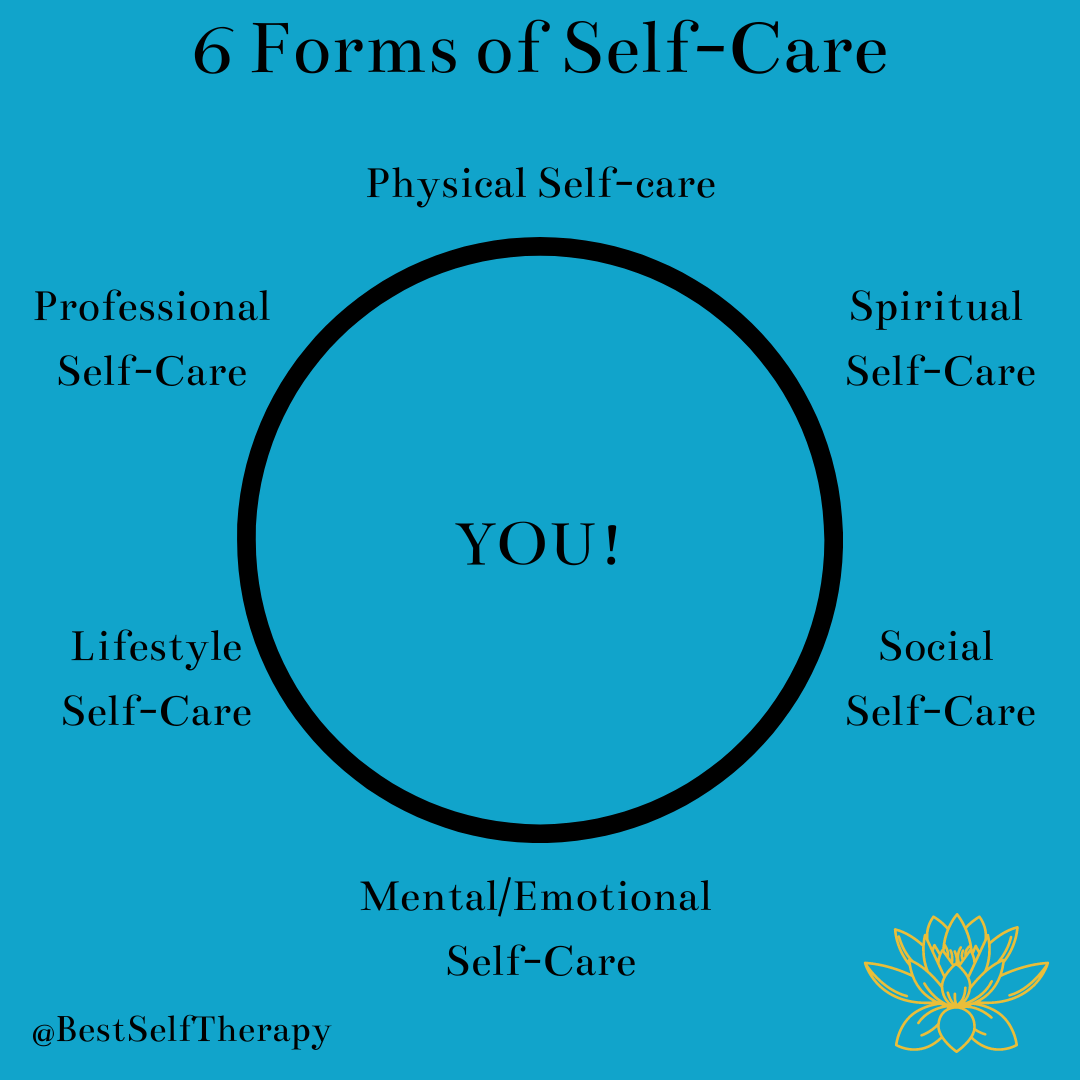Tips For Effective Self-Care
Happy February! In honor of what some see/classify as the month of love, I want to create space to discuss and explore how we can start showing ourselves more love. It is not uncommon for some of us to experience the pressure of needing to put others first before ourselves. This can be particularly true for those who are caregivers or “people pleasers”. One of the best ways we can begin to challenge these tendencies and create space for self love is through something known as self-care.
I’m willing to bet, the majority of us have heard of the term or concept of self-care. However, do you know exactly what engaging in self-care means or looks like? If your answer is no, don’t worry! Not many do which is why carving out time for self-care can be such a challenge at times. The purpose of this blog article is to provide you with an understanding of self-care and tools to help you begin incorporating in your life on the regular.
In hopes of doing this, this blog will cover areas such as:
What self-care is,
The various areas of self-care we can be attending to,
The benefits of self-care and,
The challenges of self-care
what is self-care?
“If self-care produces reluctance, it is no longer self-care.”
-Unknown
Self-care is typically the first thing encouraged to turn to when navigating life stressors such as grief and loss, anxiety, divorce, etc. I view the definition of self-care as follows:
Self-Care is The engagement in any sort of activity that will leave you feeling refueled/refreshed, Centered and grounded.
The hope of engaging in self-care is for you to be able to reconnect with your true sense of self (i.e. you feel like YOURSELF), allowing you to better navigate the life stressors you’re facing. You want to aim for feeling better once completing self-care than how you did when coming into self-care.
In talking about what self-care is, I also like to talk about what self-care is not. Self-care is not anything that:
Feels like a chore or
Brings you further distress or causes more harm than good
Now, disclaimer! For those activities that feel like a chore, I’m definitely not encouraging we throw them away all together. We still engage in them but we just don’t classify them as self-care. For example, exercise. For some, exercise is seen as a necessary evil and it feels like a chore. Does that mean we should never exercise? No. We all know there are mental and physical benefits to exercise so we still want to aim towards incorporating it into our routine but it would not be classified as self-care for those who view it as a chore.
the areas of self-care
“You can’t pour from an empty cup.”
An important factor to keep in mind when talking about self-care is to ensure you’re attending to all the different aspects of your life that would benefit from from a little bit of love! There are 6 areas of self-care that are encouraged to be attended to:
Physical self-care (i.e. nutrition, sleep, exercise, etc.)
Spiritual self-care (i.e. religion, meditation, energy, nature, etc.)
Social self-care (i.e. friends, family, gatherings, etc.)
Mental/emotional self-care (i.e. beliefs/values/morals, self-talk, therapy, introspective work, etc.)
Lifestyle self-care (i.e. structure, routine, relaxation, etc.)
Professional self-care (i.e. work ethic, goals to success, etc.)
I encourage you to engage in the self-care assessment to learn more about where you’re excelling and where you may want to direct more of your focus.
benefits & Challenges of self-care
“Self-care is not an expense, it’s an investment.” -Minimalism.co
As humans, we typically don’t engage in something that carries a lot of unknowns or uncertainty unless we know there is benefit that will come from the experience. So what might some of those be for self-care? Self-care can help:
Improve sleep
Increase attention and awareness
Improve energy and mood
Regulate emotions
Navigate life stressors (such as allowing grief to feel more manageable)
As with anything, there can also be risks or challenges to engaging in something different/new. I mentioned earlier one of the biggest obstacles or challenges to engaging in self-care is due to the lack of not knowing what self-care means. In addition to this, other obstacles to self-care might include:
Lack of time (keep in mind, self-care can be something you do for a few minutes; it doesn’t have to take up a lot of your time. A great example of a short self-care activity is listening to your favorite song.)
Unsure of frequency and duration (again, it doesn’t have to be every day for hours on in; a couple times a week for 5 minutes at a time may be perfect for you)
Lack of access to what may be utilized as self-care (i.e. can’t afford massages or membership to engage in yoga)
The act of self-care feeling selfish (read the quote above!!!)
Lacking energy to actually engage in self-care
I encourage you to take some time to think about what the challenges and benefits of engaging in self-care might be for you. Everyone’s process of this is going to look different; even down to what prevents them from actually doing self-care.
“you glow differently when you’re actually happy”
And self-care can help you find your happiness and true sense of self. If you are having difficulty in exploring this area and want guidance, let Best Self Therapy help you! Schedule your free 15 minute consultation with me to learn what your time working with me might look like.
Here’s to living a better life as your best self!
Brittany Squillace, MA, LMFT
Grief Therapist



